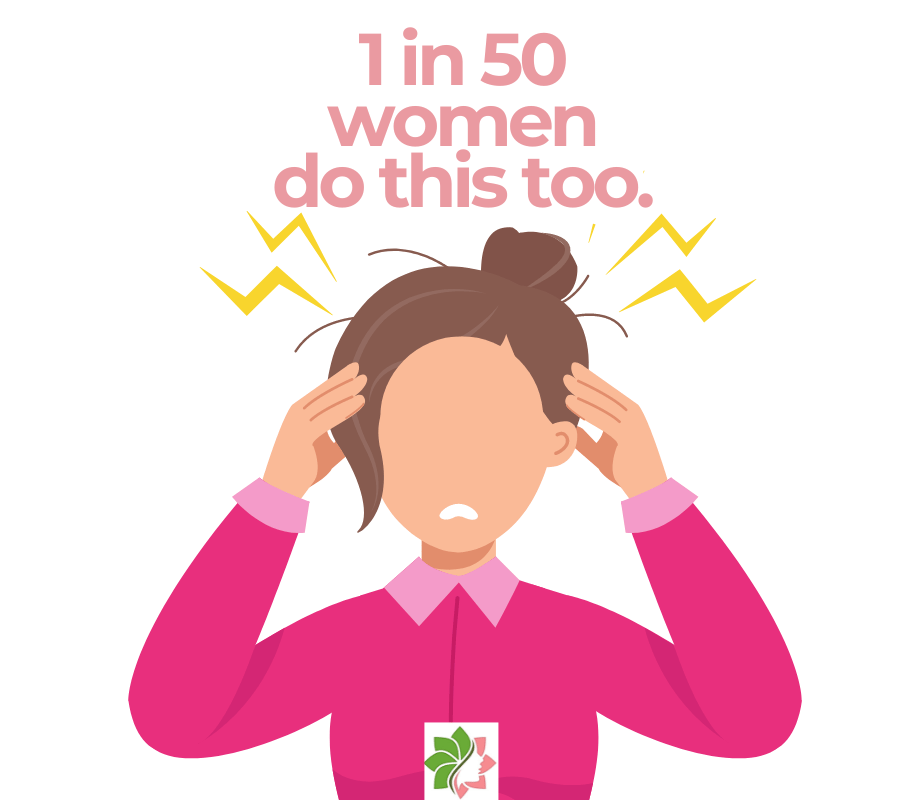Hey beautiful! Like most of us, you've probably felt the frustration of trying to explain your condition to a doctor who may not fully understand it. It can be overwhelming, but we want to remind you that you deserve care from someone who listens and is well-informed about TTM.
Trichotillomania is not a bad habit; it’s a complex medical condition that requires attention and understanding. If your doctor doesn’t know much about it, that’s okay—it’s your right to find someone who is either willing to learn or already knows how to support you. And yes, you absolutely have the right to change doctors if you're not feeling heard or supported.
Today, let’s talk about how to approach your healthcare provider and what questions you should ask to make sure they’re the right fit for you.
Trichotillomania is not a bad habit; it’s a complex medical condition that requires attention and understanding. If your doctor doesn’t know much about it, that’s okay—it’s your right to find someone who is either willing to learn or already knows how to support you. And yes, you absolutely have the right to change doctors if you're not feeling heard or supported.
Today, let’s talk about how to approach your healthcare provider and what questions you should ask to make sure they’re the right fit for you.
Understanding Trichotillomania: You Deserve Knowledgeable Care
Many doctors might not be familiar with trichotillomania, or they may treat it as a minor issue. However, TTM is a chronic condition often linked to other emotional health challenges like anxiety or obsessive-compulsive disorder (OCD). It’s important that your doctor recognizes the impact TTM has on your daily life.
Research shows that only about 27% of individuals with TTM have seen a psychiatrist about their condition (González et al., 2021). This is largely because TTM is often misunderstood or dismissed. But you shouldn’t settle for inadequate care.
Doctors who understand TTM know that the condition can have genetic, psychological, and environmental factors (Grant et al., 2020; González et al., 2021). They also know that treatment often involves a combination of strategies, including cognitive-behavioral therapy (CBT), habit reversal training (HRT), and, in some cases, medications like SSRIs and N-acetylcysteine (NAC) (Mayo Clinic, 2023).
Research shows that only about 27% of individuals with TTM have seen a psychiatrist about their condition (González et al., 2021). This is largely because TTM is often misunderstood or dismissed. But you shouldn’t settle for inadequate care.
Doctors who understand TTM know that the condition can have genetic, psychological, and environmental factors (Grant et al., 2020; González et al., 2021). They also know that treatment often involves a combination of strategies, including cognitive-behavioral therapy (CBT), habit reversal training (HRT), and, in some cases, medications like SSRIs and N-acetylcysteine (NAC) (Mayo Clinic, 2023).
Check Your Symptoms, Girl!
The first step in healing is understanding where you are at right now in managing chronic hair pulling. Our quick & easy quiz offers personalized tips for your healing journey. Take it now!

Take your career and expertise to the
next level!
Don't hesitate
Take your career and expertise to the
next level!
Bootstrap your career in Marketing now!
Bootstrap your career in Marketing now!
Key Questions to Ask Your Doctor
To ensure that your healthcare provider is informed about TTM or willing to learn, here are a few key questions you can ask during your appointment:
This will give you a sense of their familiarity with the condition. If they aren’t knowledgeable, don’t be afraid to ask if they are willing to learn.
It’s important to know if they have experience managing TTM specifically. If not, ask if they can refer you to someone who has.
Ensure they suggest evidence-based treatments like SSRIs and NAC, rather than solely relying on sedatives, tranquilizers or medications that aren’t supported by research (Grant et al., 2020).
- What do you know about trichotillomania?
This will give you a sense of their familiarity with the condition. If they aren’t knowledgeable, don’t be afraid to ask if they are willing to learn.
- Have you treated other patients with trichotillomania?
It’s important to know if they have experience managing TTM specifically. If not, ask if they can refer you to someone who has.
- What treatment options do you recommend for managing TTM?
Ensure they suggest evidence-based treatments like SSRIs and NAC, rather than solely relying on sedatives, tranquilizers or medications that aren’t supported by research (Grant et al., 2020).
- How do you stay updated on the latest research for TTM?
A good doctor will continually educate themselves about evolving treatments and strategies for managing conditions like TTM.
Collaboration with emotional health professionals can be crucial for TTM management, so having a supportive team is essential.
- Can you team with a therapist or specialist familiar with body-focused repetitive behaviors (BFRBs)?
Collaboration with emotional health professionals can be crucial for TTM management, so having a supportive team is essential.
Why It's Important to Advocate for Yourself
Finding a Trichotillomania-Informed Doctor
About HFHP
Girl, It’s Time to UnTrick Yourself™
References
UNTRICK YOURSELFTM
Learn more self-care tips for hair pullers
Explore our educational healing course for women who have trichotillomania.
Write your awesome label here.





